Last Updated on December 15, 2024
An Overview of the Best Truck Tires: The Best Rated Tires for Trucks
When outfitting your truck, choosing the best-rated tires is crucial. Unlike regular tires, top-rated truck tires are designed to handle your vehicle’s unique demands, offering superior performance, safety, and durability. Investing in the right tires can significantly enhance your driving experience, whether navigating rugged terrain or cruising down the highway.
Truck tires come in various types, each tailored to specific driving conditions and purposes. The key truck tire types include all-season, all-terrain, mud-terrain, highway, and winter tires, each offering distinct advantages for different driving scenarios. This blog will delve deep into these types, highlighting the benefits, limitations, and the best tire brand under each type. If you are set for this and more, get into it!
All-Season Tires
All-season tires are designed to provide balanced performance in various weather conditions, including dry, wet, and light winter conditions. They are engineered with a medium rubber compound that offers flexibility and durability, ensuring reliable traction and a comfortable ride throughout the year.
Key Features
- Tread Design: All-season tires feature a tread pattern optimized for multiple conditions. They typically have moderate tread depth, symmetrical or asymmetrical designs, and a mix of larger tread blocks for stability and smaller sipes for improved traction in wet conditions.
- Rubber Compounds: The rubber compounds used in all-season tires are formulated to remain flexible in various temperatures. This flexibility helps maintain grip on wet and dry roads and in light snow.
- Durability: All-season tires are built to last, with strong sidewalls and durable tread compounds that resist wear and tear. This makes them a cost-effective option for truck owners looking to maximize their tire lifespan.
- Comfort: These tires are designed to provide a smooth and quiet ride, with features such as variable pitch tread patterns that reduce road noise and enhance driving comfort.
- Fuel Efficiency: All-season tires often have lower rolling resistance than more aggressive tire types, which can contribute to improved fuel economy for trucks.
Benefits
- Versatility: All-season tires are suitable for various driving conditions, eliminating the need for seasonal tire changes. This versatility makes them a convenient choice for truck owners who drive in areas with mild weather variations.
- Cost-Effective: By providing year-round performance, all-season tires reduce the need to purchase and store separate sets of tires for different seasons, offering long-term cost savings.
- Safety: With tread designs and rubber compounds optimized for various conditions, all-season tires enhance safety by maintaining traction and stability in diverse weather scenarios.
- Convenience: All-season tires are widely available and come in various sizes to fit different truck models. Their broad application makes it easy for truck owners to find suitable options.
Limitations
- Performance in Extreme Conditions: While adequate for mild winter conditions, all-season tires may not provide optimal traction on ice and deep snow compared to dedicated winter tires.
- Wear and Tear: Due to their medium rubber compound, all-season tires may wear faster in extreme heat or harsh driving conditions.
Best Use Cases
All-season tires are ideal for drivers who experience moderate climates and primarily drive on well-maintained roads. They are well-suited for urban and suburban areas where extreme weather is infrequent.
Best All-Season Tires for Trucks in 2024
Continental VancoFourSeason Tires
- Features: The Continental VancoFourSeason tires are renowned for their robustness and long-lasting performance. With a tread design optimized for wet and dry traction, these tires offer excellent stability and grip. The advanced compound ensures durability, making it suitable for heavy-duty applications.
- Benefits: These tires provide outstanding fuel efficiency, a smooth and comfortable ride, and reliable performance even in light snow conditions. They are perfect for truck owners who demand longevity and safety from their tires.
JK Tyre America Cargo X11M A/S Tires
- Features: The JK Tyre America Cargo X11M A/S tires offer all-season versatility and superior durability. These tires are built to last and have a reinforced construction for enhanced load-carrying capacity and a specialized tread pattern for optimal traction in various conditions.
- Benefits: Ideal for truck owners who require a tire capable of handling both daily driving and heavy-duty tasks, these tires deliver excellent traction, durability, and comfort, making them a top choice for versatile performance.
Iris Stormy Tires
- Features: The Iris Stormy tires are designed for a quiet and comfortable ride, making them ideal for luxury trucks and SUVs. With a symmetric tread pattern and advanced rubber compounds, these tires offer improved fuel efficiency and a longer tread life.
- Benefits: Providing superior comfort, long-lasting performance, and reliable traction in both wet and dry conditions, these tires are an excellent option for truck owners seeking premium all-season tires focused on comfort and durability.
Ironman RB Metric Tires
- Features: The Ironman RB Metric tires are all-terrain tires that excel in all-season conditions. They feature advanced technology for enhanced grip and durability, with a tread design optimized for both on-road comfort and off-road capability.
- Benefits: These tires are ideal for truck owners who need a balance of on-road comfort and off-road performance. Offering excellent traction, long tread life, and a comfortable ride, they are a versatile choice for year-round driving.
All-Position Tires
All-position truck tires are designed to offer exceptional performance on various driving surfaces, making them versatile for highway and off-road use. These tires feature a unique blend of tread designs and rubber compounds, allowing them to handle diverse driving conditions easily.
Key Features
- Balanced Tread Pattern: All-position tires typically have a well-balanced tread design that enhances grip on both smooth and rugged surfaces. This design ensures stability and reliable performance across different terrains.
- Reinforced Sidewalls: Many all-position tires have reinforced sidewalls to protect against punctures and abrasions, a crucial feature for highway and off-road driving where sharp debris is common.
- Multi-Purpose Traction: The tread design is optimized for reliable traction on wet and dry surfaces. Siping (small slits in the tread blocks) improves grip on slick roads, while the larger tread elements ensure stability on rugged terrain.
- Durable Rubber Compounds: These tires are made with tougher rubber compounds that resist wear and tear from rough surfaces, extending the tire’s lifespan even in demanding conditions.
- Comfort and Noise Reduction: Despite their rugged design, modern all-position tires are engineered to offer a relatively smooth and quiet ride on highways, incorporating features that reduce road noise and enhance comfort.
Benefits
- Versatility: All-position tires provide excellent performance across various driving conditions, making them ideal for drivers who frequently switch between paved roads and off-road trails.
- Enhanced Durability: The robust construction and durable materials help these tires withstand harsh conditions and resist damage, reducing the need for frequent replacements.
- Improved Safety: With superior traction on multiple surfaces, all-position tires enhance overall safety by maintaining stability and control, whether driving on highways or off-road trails.
- Cost-Effective: Their long lifespan and versatility make all-position tires a cost-effective option for truck owners, eliminating the need for separate sets of tires for different driving conditions.
- Year-Round Performance: These tires are designed to perform well in various temperatures and weather conditions, providing reliable performance throughout the year.
Limitations
- Noise and Comfort: All-position tires can be noisier and less comfortable on highways compared to dedicated highway tires.
- Fuel Efficiency: The aggressive tread design and higher rolling resistance can reduce fuel economy.
Best Use Cases
All-position tires are perfect for drivers who frequently switch between paved roads and off-road trails. They are especially popular among outdoor enthusiasts and truck owners who require reliable traction and durability for different driving environments.
Best All-Position Tires for Trucks in 2024
Tourador TR866 Tires
- Features: The Tourador TR866 tires are known for their robust durability and balanced performance. They feature a reinforced sidewall for added protection and a tread design optimized for stability and traction on various surfaces.
- Benefits: These tires offer sexcellent traction on all surfaces, including wet, dry, and rugged terrains. They provide a smooth ride and long-lasting performance, making them a top choice for versatile driving conditions.
Vitour VT30 Tire
- Features: The Vitour VT30 tires combine all-position versatility with advanced tread technology. They feature an optimized tread pattern for enhanced grip and a durable compound for extended life.
- Benefits: Ideal for drivers needing reliable tires for both highway and off-road use, these tires offer superior durability, traction, and a comfortable ride, suitable for diverse driving conditions.
Americus AP2000 Tires
- Features: The Americus AP2000 tires are designed for outstanding performance in all weather conditions. They feature a balanced tread design for increased traction and stability and reinforced sidewalls for off-road durability.
- Benefits: These tires provide excellent grip on wet, snowy, and dry surfaces, making them a versatile choice for year-round driving. Their durable construction ensures long-lasting performance even in harsh conditions.
NeoTerra AP221 Tires
- Features: The NeoTerra AP221 tires balance on-road comfort and off-road capability. They feature an optimized contact patch for improved fuel efficiency and a durable tread compound for extended tire life.
- Benefits: These tires offer a smooth, quiet highway ride and reliable traction on various terrains, perfect for truck owners who need dependable tires for daily driving and occasional off-road adventures.
Trailer Tires
Trailer tires are engineered to deliver outstanding performance under heavy loads and varying driving conditions. These tires are designed to handle the demands of towing and hauling, featuring robust construction and specialized tread patterns to ensure durability and safety.
Key Features
- Strong Sidewalls: Trailer tires often have reinforced sidewalls to handle heavy loads and resist punctures and abrasions. This added strength is crucial for towing stability and reliability.
- Durable Rubber Compounds: These tires are made from tough, high-quality rubber compounds that resist cuts, chips, and wear. This durability ensures the tires can withstand the stresses of heavy loads and long hauls.
- Optimized Tread Design: The tread patterns on trailer tires are optimized for stability and even wear. They provide excellent grip and reduce the risk of tread separation, enhancing safety during towing.
- Heat Resistance: Trailer tires are designed to dissipate heat efficiently, which helps prevent blowouts during long-distance travel. This feature is essential for maintaining tire integrity under heavy loads.
- Enhanced Load Capacity: These tires are specifically rated for higher load capacities, making them suitable for a variety of trailers, including those used for commercial, agricultural, and recreational purposes.
Benefits
- Improved Stability: Trailer tires provide enhanced stability and control, ensuring safe towing and reducing the risk of swaying.
- Durability: The robust construction and durable materials help these tires withstand harsh conditions and resist damage, reducing the need for frequent replacements.
- Safety: With superior traction and load-handling capabilities, trailer tires enhance overall safety by maintaining stability and control during towing.
- Cost-Effective: Their long lifespan and reliability make trailer tires a cost-effective option, reducing maintenance and replacement costs.
- Versatility: Designed to perform well in various temperatures and weather conditions, trailer tires provide reliable performance year-round.
Limitations
- Comfort: Trailer tires are not designed for the comfort of passenger vehicles, so they may offer a rougher ride when not towing.
- Fuel Efficiency: Heavyr construction and higher load ratings can slightly reduce fuel economy compared to regular tires.
Best Use Cases
Trailer tires are ideal for truck owners who frequently tow heavy loads, including trailers for commercial use, recreational vehicles, boats, and agricultural equipment. They provide the necessary stability, durability, and safety for demanding towing conditions.
Best Trailer Tires for Trucks in 2024
Power King Low Boy HD II Tires
- Features: The Power King Low Boy HD II tires are known for their robust durability and high load capacity. They feature reinforced sidewalls for added protection and a tread design optimized for stability and even wear.
- Benefits: These tires offer excellent load-handling capabilities and durability, making them ideal for heavy-duty towing and long-distance travel.
National Road Max ST Tires
- Features: The National Road Max ST tires combine durability with superior load capacity. They feature an optimized tread pattern for enhanced grip and stability and a durable compound for extended life.
- Benefits: Ideal for drivers needing reliable tires for heavy loads, these tires offer superior durability, stability, and a smooth ride, suitable for various towing conditions.
Blackhawk BAR26SP Tires
- Features: The Blackhawk BAR26SP tires are designed for outstanding performance in towing conditions. They feature a balanced tread design for increased traction and stability and reinforced sidewalls for added protection.
- Benefits: These tires provide excellent grip on wet and dry surfaces, making them versatile for year-round towing. Their durable construction ensures long-lasting performance even under heavy loads.
Arisun AS673 Tires
- Features: The Arisun AS673 tires balance load-handling and durability. They feature an optimized contact patch for improved stability and a durable tread compound for extended tire life.
- Benefits: Perfect for truck owners who need dependable tires for towing heavy loads, these tires offer a smooth, stable ride and reliable traction on various terrains.
Goodride GTX1 Tires
- Features: The Goodride GTX1 tires are engineered for superior performance in towing applications. They feature an advanced tread design for enhanced traction and a rugged construction for durability.
- Benefits: These tires provide excellent load-handling capabilities, durability, and comfort, making them a versatile and dependable choice for heavy-duty towing. They are well-suited for drivers requiring reliable performance in all weather conditions.
Commercial Truck Drive Tires
Commercial truck drive tires are engineered to deliver optimal performance on paved roads and highways. They prioritize fuel efficiency, comfort, durability, and safety, making them an excellent choice for truck owners who primarily drive on-road. Their construction and tread design are tailored to handle the heavy loads and high speeds typical of highway driving.
Key Features
- Optimized Tread Patterns: Drive tires feature tread patterns designed to maximize contact with the road, providing excellent traction and stability. The tread design usually includes continuous ribs and circumferential grooves to ensure smooth handling and effective water evacuation.
- Durable Construction: These tires are built with strong, durable materials that can handle the heavy loads of commercial trucks. They often include reinforced belts and sidewalls to enhance durability and prevent damage from road hazards.
- Low Rolling Resistance: Drive tires are engineered to reduce rolling resistance, which improves fuel efficiency. This is achieved through advanced rubber compounds and tread designs that minimize energy loss during driving.
- Comfort and Noise Reduction: Modern drive tires incorporate technologies to reduce road noise and vibration, providing a quieter and more comfortable ride. Features such as variable pitch tread patterns help minimize noise levels.
- All-Weather Performance: While primarily designed for dry and wet conditions, many drive tires also perform well in light snow. Sipes and grooves in the tread pattern enhance grip and handling in various weather conditions.
Benefits
- Fuel Efficiency: Low rolling resistance for drive tires contributes to better fuel economy, leading to significant cost savings over time, especially for long-distance driving.
- Comfort: Drive tires are designed to provide a smooth, quiet ride, reducing driver fatigue and enhancing overall driving comfort on long trips.
- Durability: The robust construction ensures drive tires can withstand the stresses of high-speed driving and heavy loads, resulting in a longer lifespan and fewer replacements.
- Safety: Optimized tread patterns and durable materials provide excellent traction and stability, enhancing safety by reducing the risk of hydroplaning and improving braking performance.
- All-Weather Capability: Many drive tires offer reliable performance in various weather conditions, making them a versatile choice for year-round driving.
Limitations
- Off-Road Capability: Drive tires are unsuitable for off-road conditions and may quickly wear out or get damaged on rough terrain.
- Limited Versatility: These tires are best suited for paved roads and do not perform well in snow or mud.
Best Use Cases
Drive tires are perfect for commercial truck drivers who spend most of their time on paved roads and highways. They are also suitable for personal trucks that primarily commute and travel long distances.
Best Commercial Truck Drive Tires in 2024
Blackhawk BDR28SP Tires
- Features: The Blackhawk BDR28SP tires are known for their robust durability and high load capacity. They feature reinforced sidewalls for added protection and a tread design optimized for stability and even wear.
- Benefits: These tires offer excellent load-handling capabilities and durability, making them ideal for heavy-duty highway driving and long-distance travel.
Goodride CM986 Tires
- Features: The Goodride CM986 tires combine durability with superior load capacity. They feature an optimized tread pattern for enhanced grip and stability and a durable compound for extended life.
- Benefits: Ideal for drivers needing reliable tires for heavy loads, these tires offer superior durability, stability, and a smooth ride, suitable for various highway conditions.
Americus RD3000 Tires
- Features: The Americus RD3000 tires are designed for outstanding performance in highway conditions. They feature a balanced tread design for increased traction and stability and reinforced sidewalls for added protection.
- Benefits: These tires provide excellent grip on wet and dry surfaces, making them versatile for year-round highway driving. Their durable construction ensures long-lasting performance even under heavy loads.
Americus MS4000 Tires
- Features: The Americus MS4000 tires balance load-handling and durability. They feature an optimized contact patch for improved stability and a durable tread compound for extended tire life.
- Benefits: Perfect for truck owners who need dependable tires for daily highway driving, these tires offer a smooth, quiet ride and reliable traction on various terrains.
Arisun AD778 Tires
- Features: The Arisun AD778 tires are engineered for superior performance in highway applications. They feature an advanced tread design for enhanced traction and a rugged construction for durability.
- Benefits: These tires provide excellent load-handling capabilities, durability, and comfort, making them a versatile and dependable choice for heavy-duty highway driving. They are well-suited for drivers requiring reliable performance in all weather conditions.
Winter Tires
Winter truck tires are specifically engineered to provide optimal performance and safety in cold weather conditions, including snow, ice, and slush. These tires feature unique rubber compounds and tread designs that remain flexible in low temperatures and offer superior traction on slippery surfaces. Winter tires are essential for truck owners who operate in regions with harsh winter weather, ensuring safety and reliability when conditions are at their worst
Key Features
- Cold-Weather Rubber Compounds: Winter tires have special rubber compounds that stay flexible even in freezing temperatures. This flexibility enhances grip and traction on icy and snowy roads.
- Aggressive Tread Patterns: These tires feature deeper treads and more aggressive patterns with wide grooves to channel snow, slush, and water away from the tire. This design helps maintain contact with the road and reduces the risk of hydroplaning.
- Siping: Winter tires have numerous sipes (small slits in the tread blocks) that create additional biting edges for improved traction on ice and packed snow. The sipes help grip the road and provide better control.
- Studdable Options: Some winter tires can accommodate metal studs for enhanced traction on ice. Studded tires offer exceptional grip but may be subject to regulations depending on the region.
- Enhanced Sidewall Strength: Many winter tires have reinforced sidewalls that withstand the stresses of winter driving conditions and provide additional durability.
Benefits
- Superior Traction: The advanced tread designs and rubber compounds provide excellent grip on snow, ice, and slush, ensuring safe and stable driving in winter conditions.
- Improved Safety: Winter tires significantly reduce stopping distances and enhance vehicle control on icy and snowy roads, reducing the risk of accidents.
- Enhanced Durability: Winter tires’ robust construction ensures they can handle the rigors of winter driving, including impacts from potholes and other road hazards.
- Better Handling: With optimized tread patterns and siping, winter tires offer better handling and maneuverability, allowing drivers to navigate winter roads confidently.
- Legal Compliance: In some regions, winter tires are required by law during certain months. Using winter tires ensures compliance with these regulations and avoids potential fines.
Limitations
- Seasonal Use: Winter tires are unsuitable for warm weather, as the rubber compounds can wear out quickly in higher temperatures.
- Storage: Drivers need to switch to winter tires seasonally and store their regular ones during winter.
Best Use Cases
Winter tires are essential for drivers in regions with harsh winter conditions. They are crucial for ensuring safety and performance on snowy, icy, and cold roads, making them a vital investment for winter driving.
Best Winter Tires for Trucks in 2024
Continental VancoWinter 2 Tires
- Features: The Continental VancoWinter 2 tires offer excellent winter performance with a high-silica compound that stays flexible in cold weather. Their unique tread design improves water and slush evacuation, while the multiple sipes enhance grip on ice and snow.
- Benefits: These tires provide reliable traction and control in winter conditions, making them ideal for truck owners who prioritize safety and performance during the cold months.
Mastercraft Glacier MSR Tires
- Features: The Mastercraft Glacier MSR tires are designed for superior winter traction with a specialized rubber compound that remains pliable in freezing temperatures. They feature a wide tread pattern for enhanced stability and numerous sipes for improved grip.
- Benefits: These tires offer excellent durability and performance on icy and snowy roads, making them a dependable choice for truck owners needing robust winter tires.
Firestone Winterforce CV Tires
- Features: The Firestone Winterforce CV tires feature a durable rubber compound optimized for cold-weather performance. Their aggressive tread pattern and numerous biting edges provide superior traction on snow and ice.
- Benefits: These tires deliver exceptional handling and stability in winter conditions, ensuring a safe and comfortable drive for truck owners.
Nexen Winguard Winspike Tires
- Features: The Nexen Winguard Winspike tires are engineered for extreme winter conditions. They feature a unique tread pattern with optimized sipes and stud holes for enhanced grip on icy surfaces.
- Benefits: Offering excellent traction and control, these tires are perfect for truck owners who drive in harsh winter environments, providing safety and reliability.
Nokian Hakkapeliitta C3 (Studded) Tires
- Features: The Nokian Hakkapeliitta C3 studded tires are designed for the most challenging winter conditions. They feature advanced stud technology for maximum grip on ice and an aggressive tread pattern for superior traction in deep snow.
- Benefits: These tires provide unmatched performance and durability in extreme winter weather, making them the top choice for truck owners needing the highest level of safety and control.
Importance of Choosing the Right Tires
Selecting the appropriate tires for your truck is essential for several reasons, impacting safety, performance, and operational costs. Here are key factors to consider:
- Safety: The right tires ensure optimal grip and handling, reducing the risk of accidents. Tires that match the driving conditions (e.g., all-terrain for mixed surfaces or winter tires for snowy regions) provide better control and stability.
- Performance: Tires affect a truck’s acceleration, braking, and cornering capabilities. For example, highway tires improve fuel efficiency and ride comfort on paved roads, while mud-terrain tires offer superior traction in off-road conditions.
- Durability: Choosing tires suited to your typical driving conditions extends their lifespan. All-terrain tires, for instance, are more resistant to punctures and wear on rough surfaces than highway tires.
- Cost Efficiency: Proper tire selection can lead to cost savings. While specialized tires like winter or mud-terrain models might have a higher upfront cost, they prevent premature wear and damage, reducing the frequency of replacements and maintenance costs.
- Fuel Efficiency: Tires with low rolling resistance, such as highway tires, improve fuel economy by requiring less energy to maintain motion. This can lead to significant fuel savings over the tires’ lifetime.
- Regulatory Compliance: Certain regions have regulations mandating specific types of tires during particular seasons. For instance, many areas require winter tires during snowy months for enhanced safety, and compliance with these regulations ensures safety and avoids legal penalties.
Factors to Consider When Choosing Truck Tires
Selecting the right tires for your truck is a critical decision that impacts your vehicle’s performance, safety, and efficiency. Various factors must be considered to ensure you make an informed choice. Here, we explore the key factors to consider when choosing truck tires: load capacity, tread pattern, durability, and fuel efficiency.
Load Capacity
Load capacity, or load rating or index, refers to the maximum weight a tire can safely support. This is a crucial factor for truck tires, as trucks often carry heavy loads, and the tires must be capable of handling the weight without compromising safety or performance.
Importance
- Safety: Using tires with an inadequate load capacity can lead to tire failure, posing significant safety risks such as blowouts and accidents.
- Vehicle Performance: Tires that match the vehicle’s load requirements ensure optimal handling and stability, especially when carrying heavy loads.
- Legal Compliance: Regulations often mandate specific load ratings for commercial vehicles. Using the correct tires ensures compliance with these regulations and avoids potential fines.
How to Determine Load Capacity
- Load Index: The load index is a numerical code on the tire’s sidewall indicating its maximum load-carrying capacity. Refer to the vehicle’s owner’s manual or the tire placard for the recommended load index.
- Manufacturer Specifications: Always choose tires that meet or exceed the manufacturer’s specified load capacity for your truck.
Tread Pattern
A tire’s tread pattern significantly influences its performance in different driving conditions. Tread patterns vary widely, from aggressive designs for off-road use to smoother patterns for highway driving.
Importance
- Traction and Grip: The tread pattern determines how well the tire grips the road surface, affecting traction in conditions such as wet, dry, snowy, or muddy terrain.
- Handling and Stability: Different tread designs offer varying levels of stability and handling, impacting the vehicle’s responsiveness and control.
- Noise and Comfort: Tread patterns also affect road noise and ride comfort. Smoother patterns generally offer quieter and more comfortable rides, while more aggressive patterns can be noisier.
Types of Tread Patterns for Different Tire Categories
- All-Season Tires: Designed for versatile performance in various conditions, all-season tires feature tread patterns that provide balanced traction on both wet and dry roads.
- All Position Tires: Suitable for multiple positions on a vehicle, these tires often feature tread patterns that ensure good traction and durability across various road conditions, making them versatile and reliable.
- Trailer Tires: These tires have tread patterns optimized for towing, offering stability and load-bearing capacity. They are designed to provide excellent traction and reduce rolling resistance for better fuel efficiency.
- Drive Tires: Specifically designed for the driving axle, these tires have tread patterns that maximize traction, especially in challenging conditions. They often feature larger tread blocks and deeper grooves to enhance grip on rough surfaces.
- Winter Tires: With tread patterns that handle snow, ice, and cold temperatures, winter tires offer superior grip and traction. They have unique rubber compounds and aggressive tread designs to ensure safety and performance in harsh winter conditions.
Durability
Durability refers to how long a tire lasts under normal usage. Durable tires resist wear and damage, providing longer service life and reducing the need for frequent replacements.
Importance
- Cost Efficiency: Durable tires reduce the frequency of replacements, saving money over the long term.
- Performance: Durable tires maintain their performance characteristics longer, ensuring consistent traction, handling, and safety throughout their lifespan.
- Environmental Impact: Longer-lasting tires reduce waste, making them a more environmentally friendly option.
Factors Affecting Durability
- Rubber Compound: High-quality rubber compounds resist wear and tear better, extending the tire’s lifespan.
- Tread Depth: Deeper treads generally last longer as there is more material to wear down over time.
- Construction: Tires with reinforced sidewalls and multiple plies are more resistant to damage from road hazards.
Fuel Efficiency
Fuel efficiency in tires refers to how the design and construction of the tire influence the vehicle’s fuel consumption. Tires with lower rolling resistance require less energy to maintain motion, improving fuel economy.
Importance
- Cost Savings: Improved fuel efficiency reduces fuel consumption, leading to significant cost savings, especially for long-distance driving.
- Environmental Benefits: Lower fuel consumption translates to reduced emissions, making fuel-efficient tires a more environmentally friendly choice.
- Performance: Fuel-efficient tires often enhance overall vehicle performance by reducing the energy required for driving.
Factors Influencing Fuel Efficiency
- Rolling Resistance: Tires designed with low rolling resistance minimize energy loss, improving fuel efficiency.
- Tread Design: Smoother tread patterns with fewer aggressive features typically offer better fuel economy.
- Tire Pressure: Maintaining proper tire pressure is crucial for fuel efficiency. Underinflated tires increase rolling resistance, leading to higher fuel consumption.
Best Practices for Maximizing Fuel Efficiency
- Regularly check and maintain proper tire pressure.
- Rotate tires according to the manufacturer’s recommendations to ensure even wear.
- Choose tires specifically designed for low rolling resistance if fuel efficiency is a top priority.
How to Maintain Your Truck Tires
Maintaining your truck tires is essential for ensuring safety, performance, and longevity. Proper tire maintenance involves regular inspections, proper inflation, rotating tires, and adequate balancing and alignment. These practices help prevent premature wear, improve fuel efficiency, and ensure a smooth and safe driving experience. Here’s a detailed guide on how to maintain your truck tires effectively.
Regular Inspections
Regular tire inspections are crucial for identifying potential issues before they become serious problems. They should be performed frequently, every month, and before long trips. The importance of regular inspections includes:
- Safety: Regular inspections help detect cuts, punctures, or sidewall damage that could lead to tire failure.
- Performance: Identifying uneven wear patterns early can help address underlying issues such as misalignment or improper inflation.
- Cost Savings: Catching problems early can prevent more severe damage, reducing the need for expensive repairs or replacements.
Inspection Steps
- Tread Depth: Use a tread depth gauge to ensure your tires have adequate tread. Tires should be replaced when the tread depth reaches 2/32 of an inch.
- Tire Pressure: Check the tire pressure with a reliable gauge and compare it to the manufacturer’s recommended levels, found in the owner’s manual or on the tire placard.
- Visual Inspection: Look for any visible signs of damage, such as cuts, cracks, bulges, or punctures. Inspect the sidewalls and tread for any irregularities.
- Check for Uneven Wear: Examine the tire tread for uneven wear patterns, which could indicate issues with alignment, balance, or suspension.
Proper Inflation
Maintaining the correct tire pressure is vital for your tires’ safety, performance, and longevity. Underinflated or overinflated tires can lead to various issues, including reduced fuel efficiency, uneven wear, and increased risk of blowouts.
Importance
- Safety: Properly inflated tires provide better handling and stability, reducing the risk of accidents.
- Fuel Efficiency: Correct tire pressure minimizes rolling resistance, improving fuel economy.
- Tire Longevity: Maintaining the right pressure helps ensure even wear, extending the life of your tires.
Best Practices
- Check Regularly: Tire pressure should be checked at least once a month and before long trips using a reliable tire pressure gauge.
- Adjust for Temperature: Tire pressure can fluctuate with temperature changes. Check and adjust the pressure when tires are cold (before driving) for the most accurate reading.
- Follow Manufacturer Recommendations: Always inflate tires to the pressure specified by the vehicle manufacturer, not the maximum pressure listed on the tire sidewall.
Rotating Tires
Tire rotation involves moving tires from one position on the vehicle to another to ensure even wear. Regular rotation helps extend the life of your tires and maintain balanced handling.
Importance
- Even Wear: Rotating tires helps achieve uniform tread wear, improving tire longevity.
- Performance: Evenly worn tires provide better handling and traction.
- Cost Savings: Regular tire rotation extends tire life and reduces the frequency of tire replacements, saving money over time.
Rotation Patterns
- Front-Wheel Drive: Move the front tires to the rear and the rear tires to the front, crossing them to opposite sides.
- Rear-Wheel Drive: Move the rear tires to the front and the front tires to the rear, crossing them to opposite sides.
- All-Wheel Drive: Follow the vehicle manufacturer’s recommended pattern, often similar to the rear-wheel drive pattern.
Frequency
Rotate your tires every 5,000 to 7,500 miles or as your vehicle’s manufacturer recommends.
Balancing and Alignment
Tire balancing ensures that the weight is evenly distributed around the wheel while wheel alignment involves adjusting the wheels’ angles to ensure they are set to the manufacturer’s specifications. Proper alignment is crucial for even tire wear; optimal handling and unbalanced tires can cause vibrations, uneven wear, and stress on the vehicle’s suspension.
Alignment Angles
- Camber: The tire tilts inward or outward when viewed from the front.
- Toe: The direction in which the tires point relative to each other when viewed from above.
- Caster: The angle of the steering axis when viewed from the side.
Importance of Tire Balancing
- Smooth Ride: Balanced tires provide a softer, more comfortable ride.
- Tire Longevity: Balancing prevents uneven wear, extending tire life.
- Vehicle Health: Reduces stress on suspension components, preventing premature wear and tear.
Importance of Wheel Alignment
- Safety: Proper alignment ensures the vehicle tracks straight and true, reducing the risk of accidents.
- Tire Longevity: Correct alignment prevents uneven tire wear, extending tire life.
- Fuel Efficiency: Misaligned wheels can increase rolling resistance, reducing fuel efficiency.
How to Balance Your Tires
- Balancing Machine: A technician uses a balancing machine to identify weight imbalances in the tire and wheel assembly.
- Weight Adjustment: Small weights are added to the wheel to correct imbalances.
Frequency
Balance your tires every 6,000 to 8,000 miles or whenever you notice vibrations. In contrast, align your wheels every 12,000 miles or as your vehicle’s manufacturer recommends. Also, check alignment after any significant impact, such as hitting a pothole.
Final Recommendations
Selecting the best tires for your truck involves considering various factors such as load capacity, tread pattern, durability, and fuel efficiency. Choose tires that match your specific driving needs and conditions to ensure optimal performance and safety.
All-season tires are an excellent choice for those who drive in moderate climates and require year-round reliability. If your driving involves both on- and off-road conditions, all-terrain tires will provide the versatility and durability needed for various terrains. For extreme off-road adventures, mud-terrain tires are the way to go, offering exceptional traction and durability.
Highway tires are ideal if you primarily drive on highways and seek comfort and efficiency. Finally, winter tires are essential for safety and performance when driving in snowy and icy conditions.
Transition to Buying from Tires Easy Truck
At Tires Easy Truck, we understand the importance of having the right tires for your truck. Our extensive range of top-rated truck tires ensures you can find the perfect match for your driving needs. With a commitment to quality and customer satisfaction, we offer a seamless buying experience, competitive prices, and expert advice to help you make the best choice.
Ready to upgrade your truck’s tires? Visit Tires Easy Truck today to explore our selection of top-rated truck tires and take advantage of our exceptional deals and services. Your journey to better performance and safety starts here.
Call to Action: Shop Now at Tires Easy Truck
By following this guide and selecting the right tires for your truck, you can ensure a smoother, safer, and more efficient driving experience—Trust Tires Easy Truck to provide the quality and reliability you need on the road.
FAQS
How often should I rotate my truck tires?
Rotating your truck tires every 5,000 to 7,500 miles is generally recommended to ensure even tread wear and extend the life of your tires. Consult your vehicle’s owner’s manual for specific recommendations, as they can vary based on the type of tires and driving conditions.
What is the difference between all-season and all-position tires?
All-season tires are designed for year-round use in moderate climates and offer balanced performance in various conditions, including wet and dry roads. On the other hand, all-position tires are built for both on- and off-road use and feature more aggressive tread patterns that provide better traction on dirt, gravel, and other rough surfaces.
How can I tell if my truck tires need to be replaced?
Check the tread depth with a tread depth gauge. If the tread is less than 2/32 of an inch, it’s time to replace your tires. Additionally, look for signs of damage, such as cracks, bulges, punctures, and uneven wear patterns, which can indicate the need for replacement.
What are the benefits of using winter tires?
Winter tires are designed to remain flexible in cold temperatures and provide superior traction on snow and ice. They feature unique rubber compounds and tread patterns that enhance grip and safety in winter conditions, significantly reducing stopping distances and improving control.
How important is tire pressure for my truck tires?
Maintaining proper tire pressure is crucial for safety, fuel efficiency, and tire longevity. Underinflated tires can lead to increased wear, reduced fuel efficiency, and a higher risk of blowouts, while overinflated tires can cause uneven wear and a harsher ride. Check your tire pressure regularly and adjust it according to the manufacturer’s specifications.
What should I look for when buying truck tires?
Consider load capacity, tread pattern, durability, and fuel efficiency when buying truck tires. Ensure the tires match your driving needs and conditions for highway driving, off-roading, or all-season use. Always choose tires from reputable brands and consult expert reviews and recommendations.
How do I maintain my truck tires?
Regular maintenance includes:
- Inspecting tires monthly for damage and wear.
- Checking and maintaining proper tire pressure.
- Rotating tires every 5,000 to 7,500 miles.
- Ensuring proper wheel balancing and alignment.
- Replacing tires when the tread depth is below 2/32 of an inch or if there is visible damage.
How often should I rotate my truck tires?
It is generally recommended that truck tires be rotated every 5,000 to 7,500 miles to ensure even tread wear and extend their lifespan. Refer to your vehicle’s owner’s manual for specific guidelines, as recommendations can vary based on the type of tires and driving conditions.
What is the difference between all-season and all-terrain tires?
All-season tires offer balanced performance for year-round use in moderate climates, performing well on wet and dry roads. However, all-terrain tires have more aggressive tread patterns suited for both on- and off-road conditions, providing better traction on rough and unpaved surfaces.
How can I tell if my truck tires need to be replaced?
Check the tread depth using a gauge; if it’s below 2/32 of an inch, it’s time for replacement. Additionally, inspect your tires for visible damage, such as cracks, bulges, or punctures, and watch for uneven wear patterns that may indicate other issues.
What are the benefits of using winter tires?
Winter tires are designed with special rubber compounds and tread patterns that stay flexible in cold temperatures, providing superior traction on snow and ice. They significantly enhance safety by reducing stopping distances and improving vehicle control in winter conditions.
How important is tire pressure for my truck tires?
Maintaining proper tire pressure is crucial for safety, fuel efficiency, and longevity. Underinflated tires can lead to increased wear and the risk of blowouts, while overinflated tires may cause uneven wear and a harsher ride. Regularly check and adjust tire pressure according to the manufacturer’s specifications.
What should I look for when buying truck tires?
Consider load capacity, tread pattern, durability, and fuel efficiency when buying truck tires. Choose tires that match your driving needs and conditions, and opt for reputable brands to ensure quality and reliability.
How do I maintain my truck tires?
Maintain your truck tires by performing regular inspections, checking and adjusting tire pressure, rotating them every 5,000 to 7,500 miles, and ensuring proper balancing and alignment. Replace tires when the tread depth is below 2/32 of an inch or if there is visible damage.




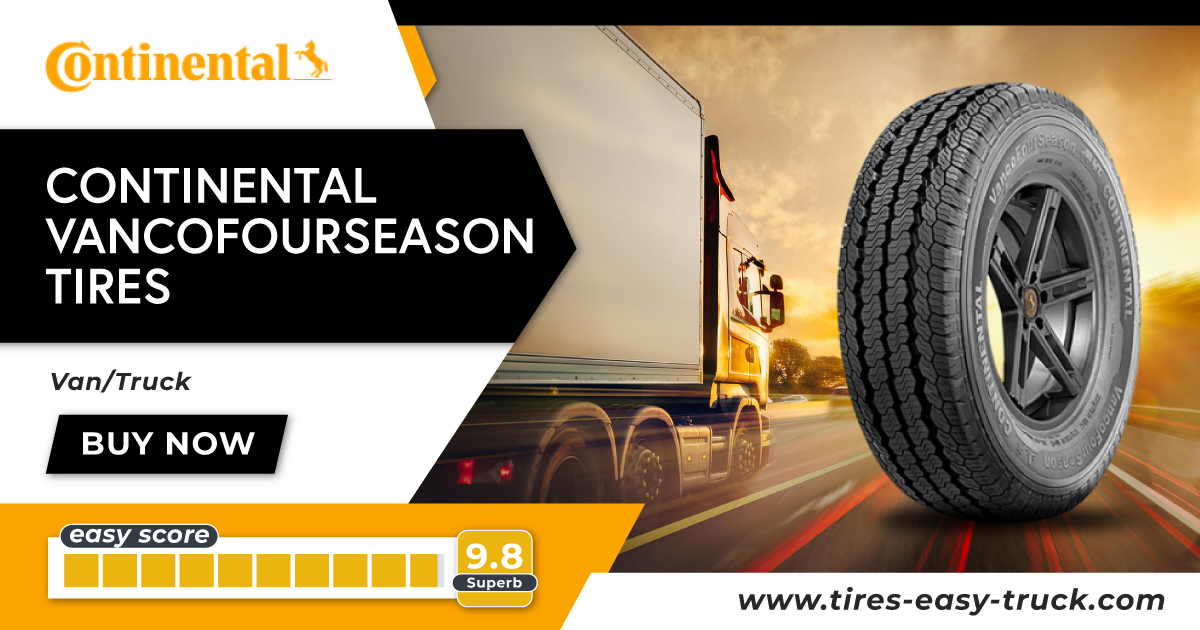
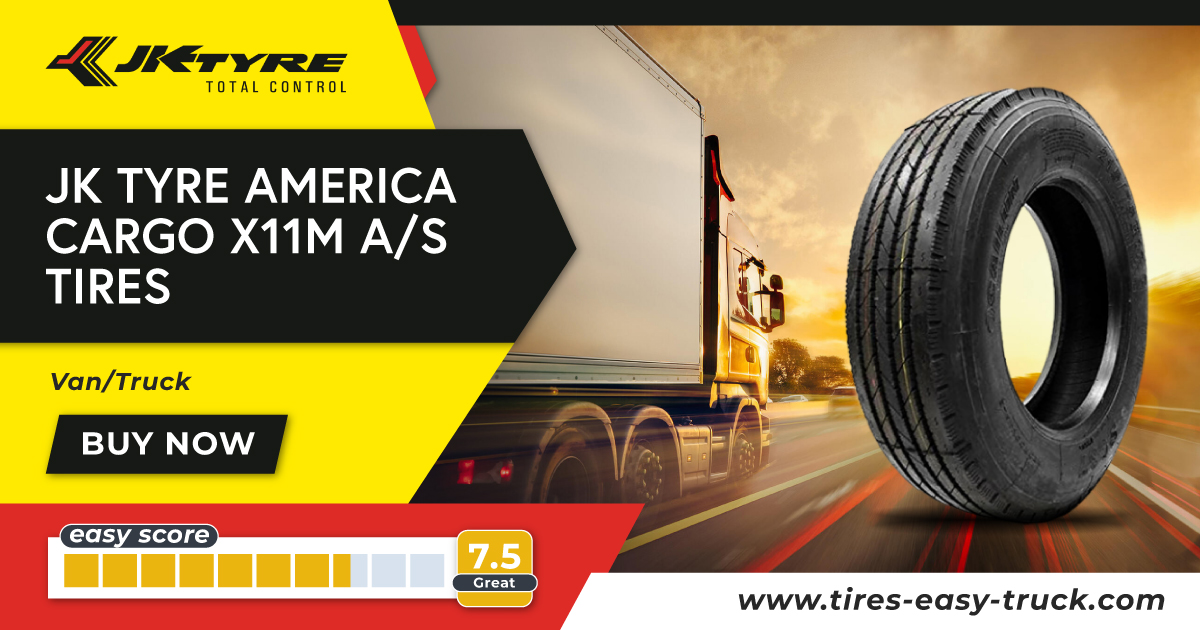
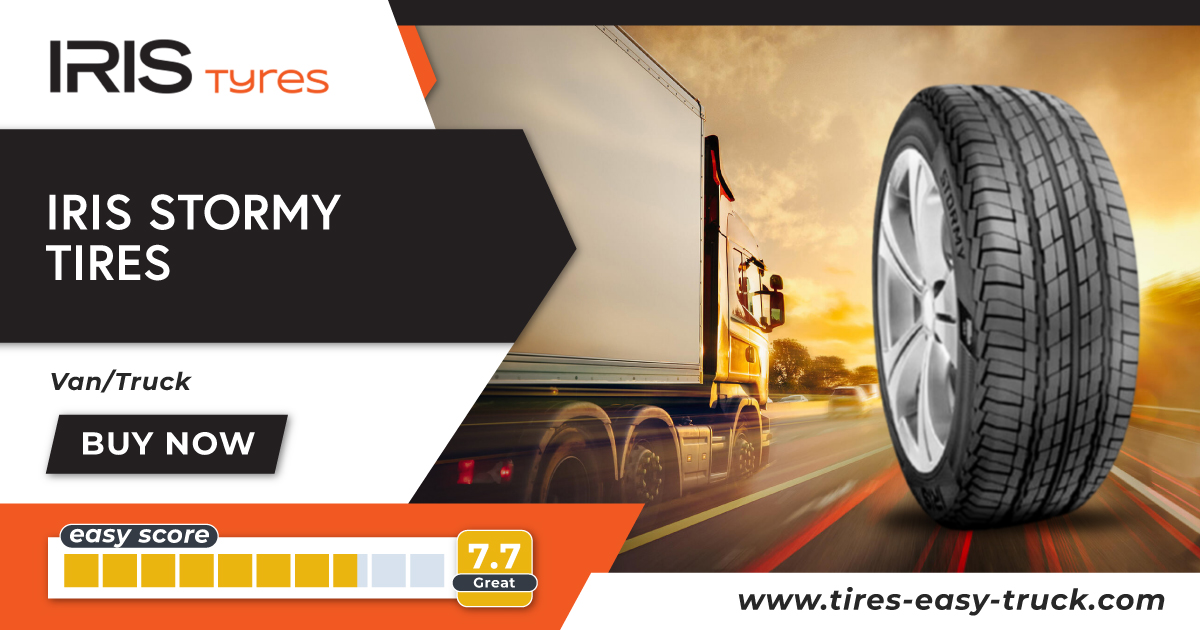
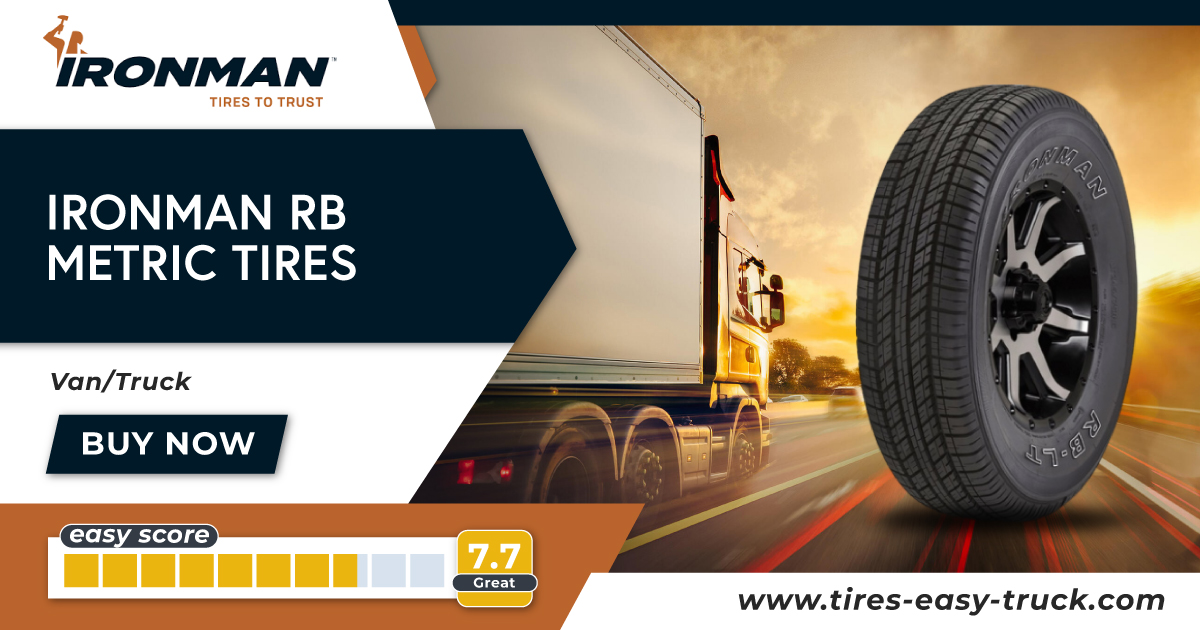
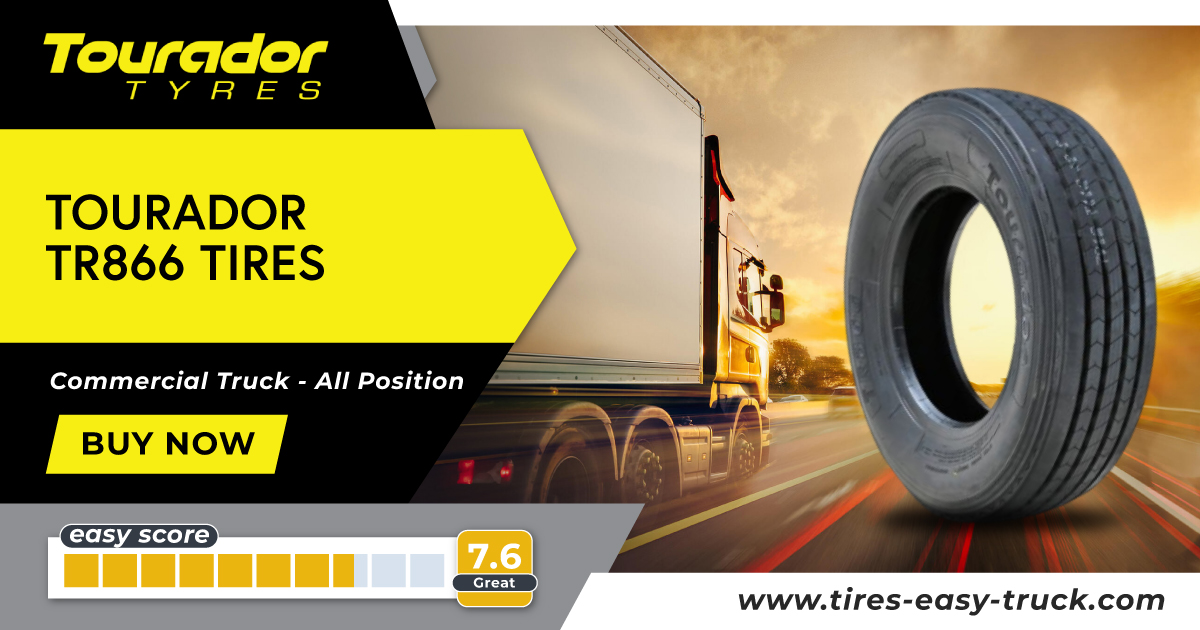
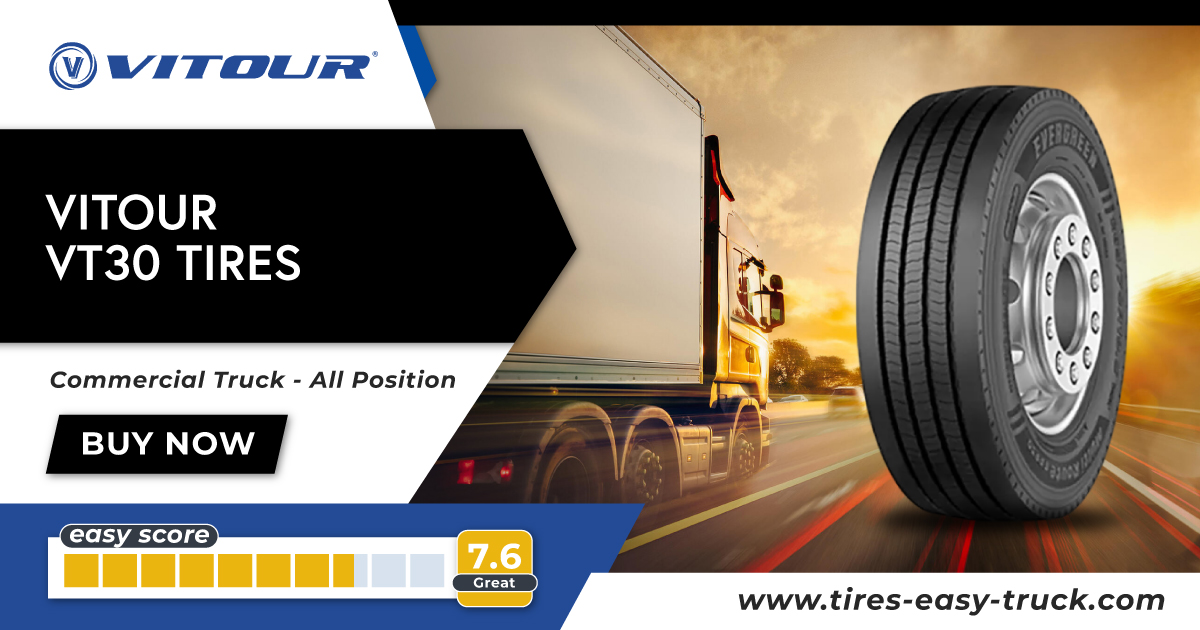
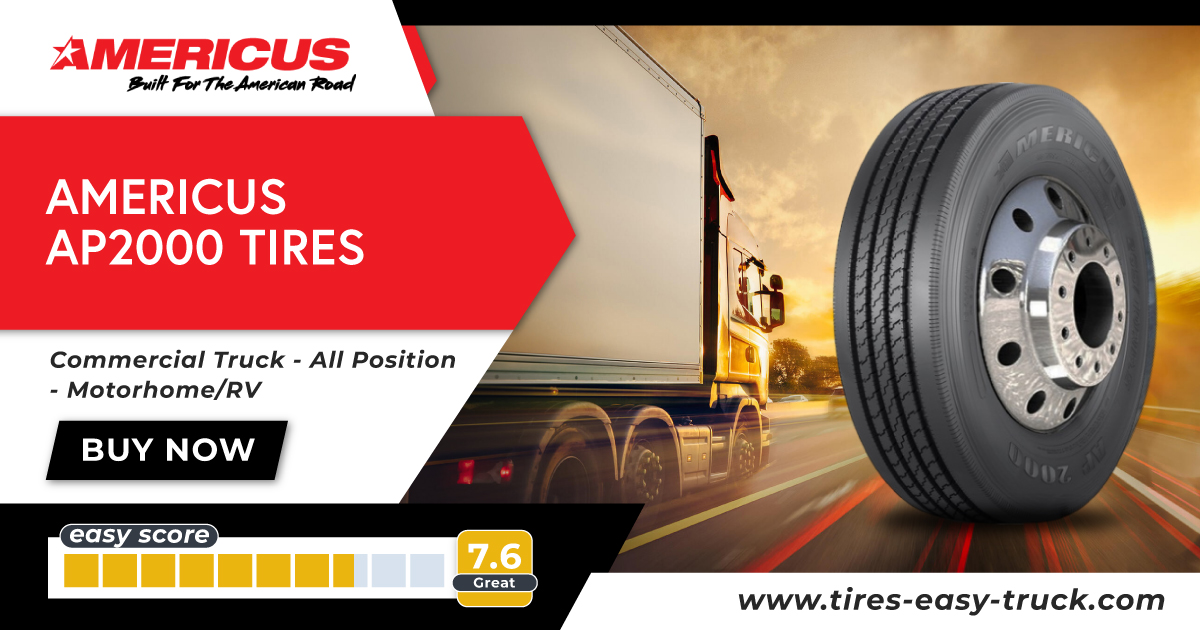
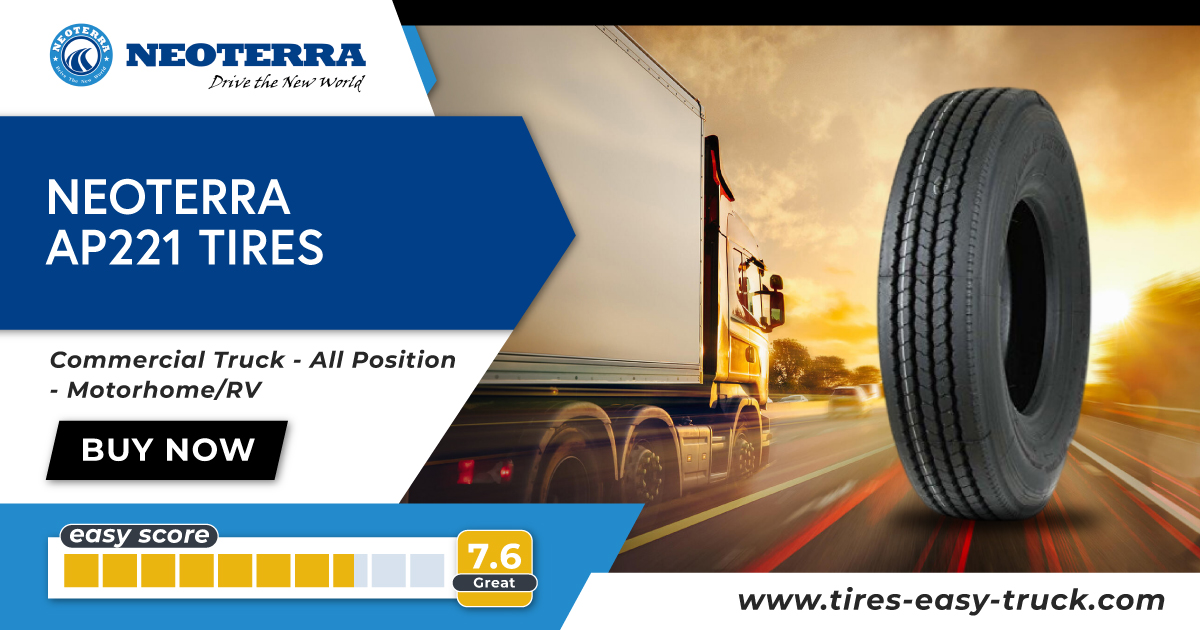
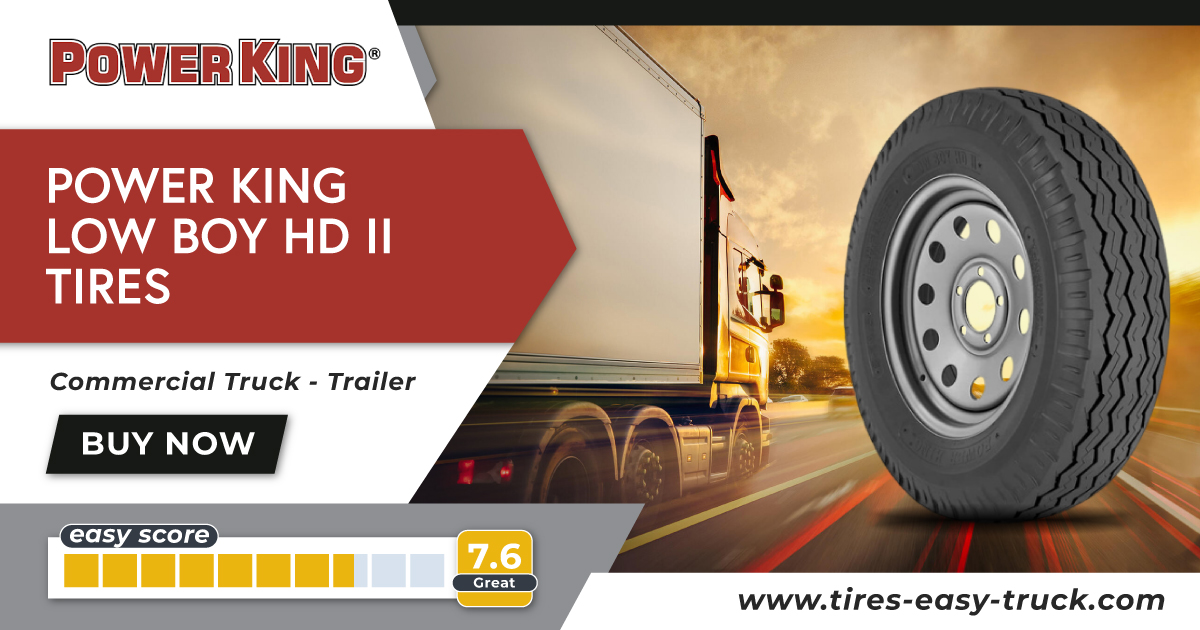
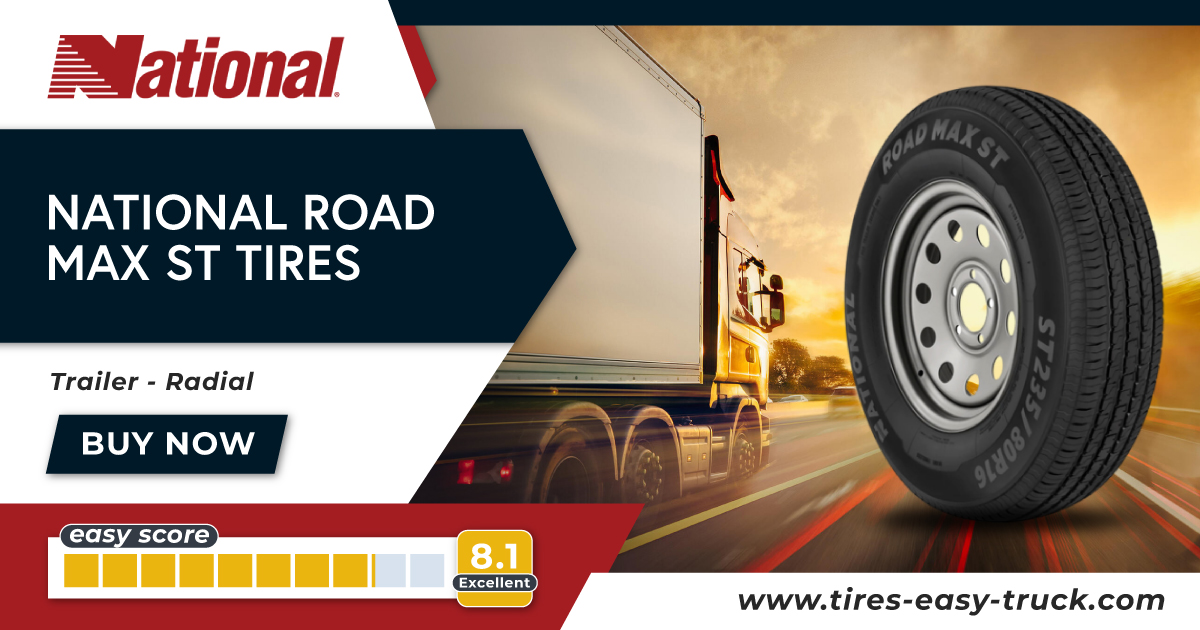
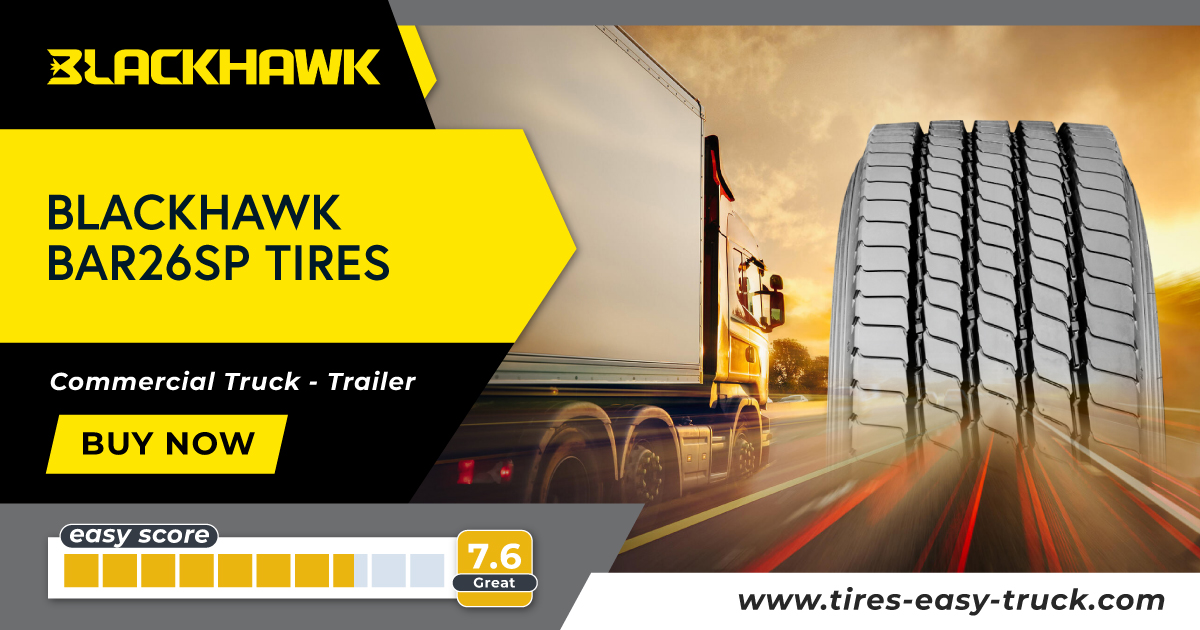
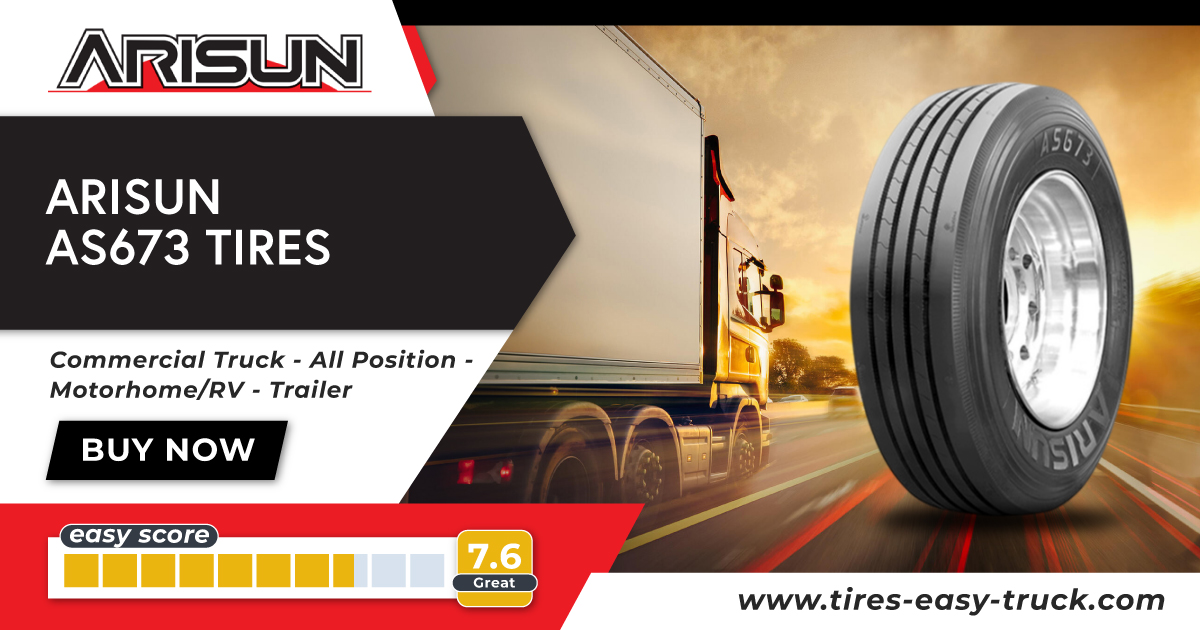
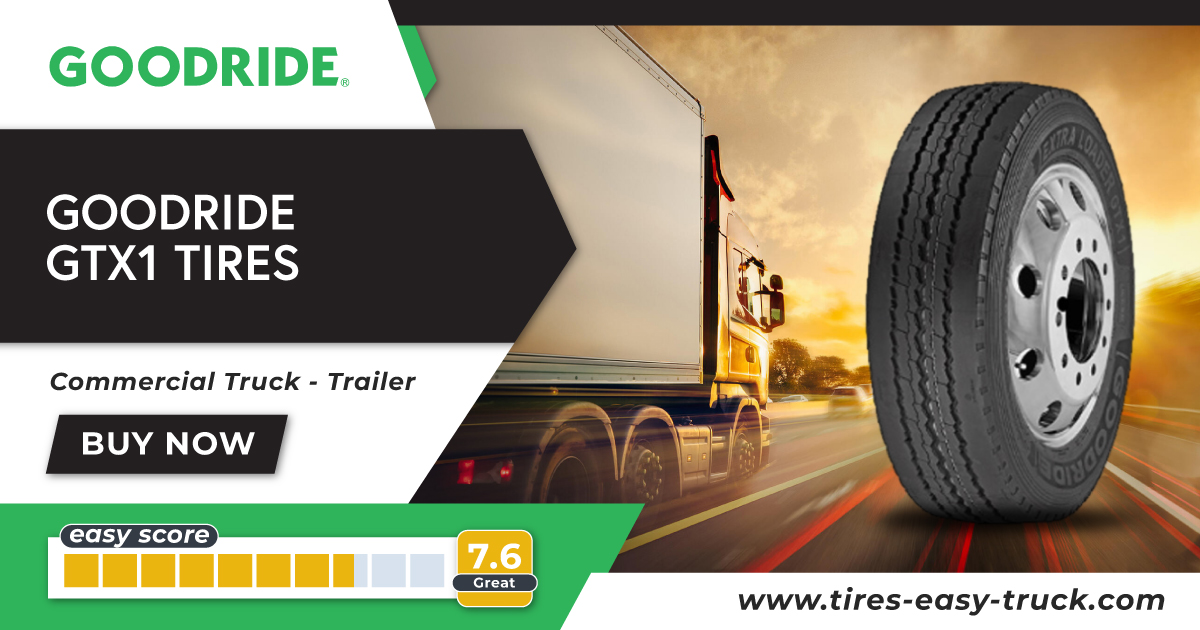
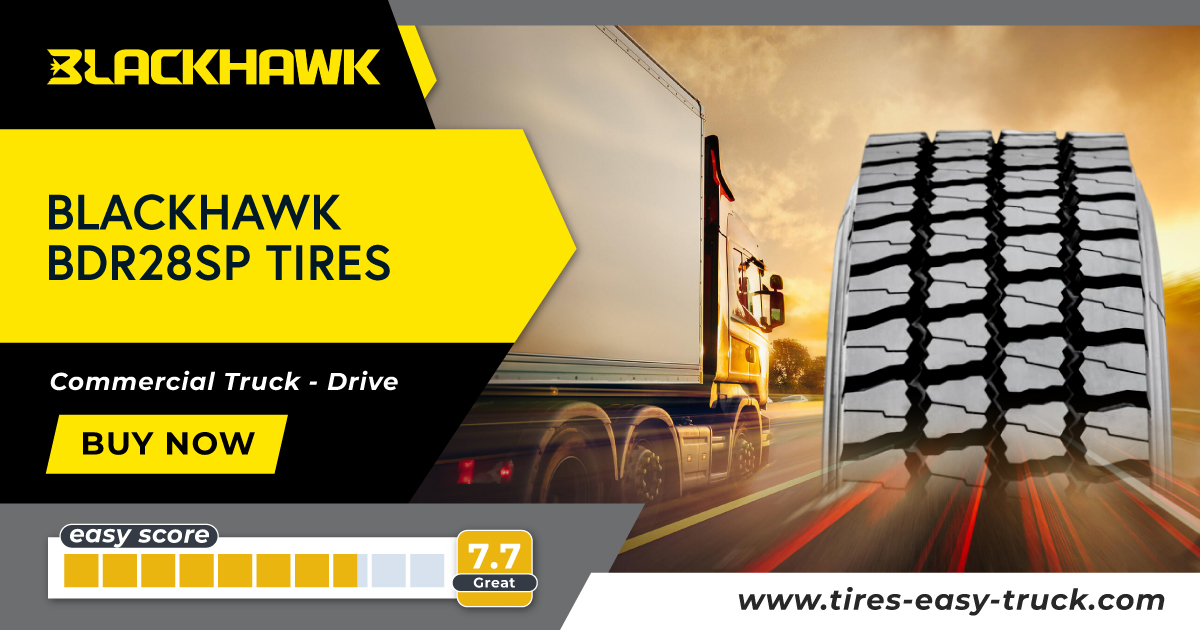
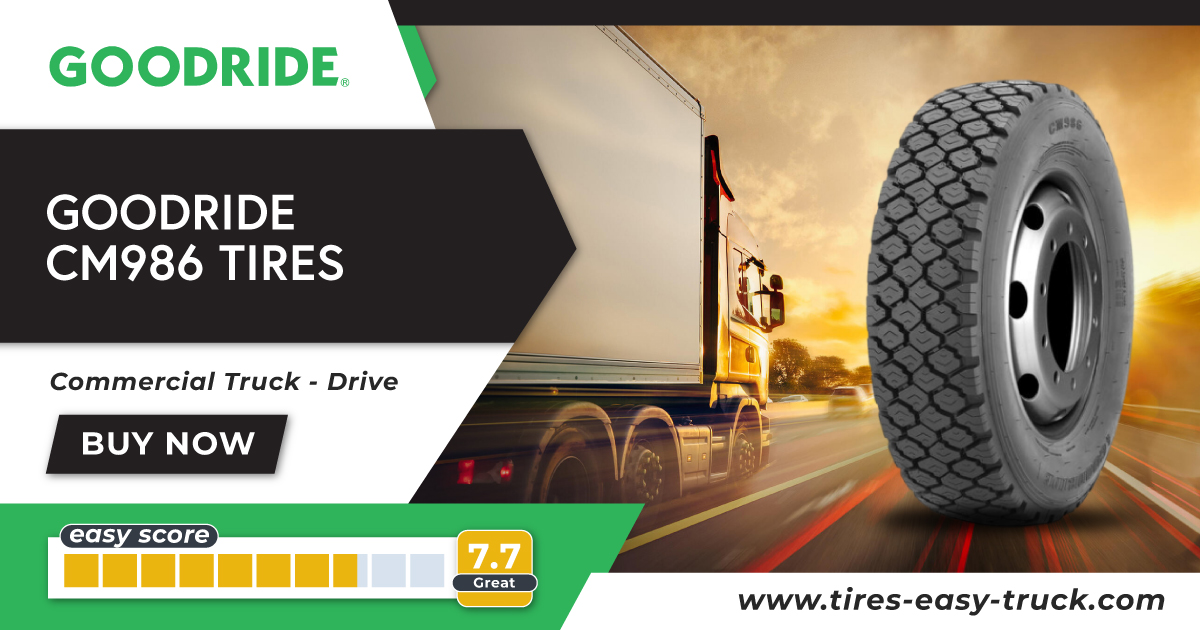
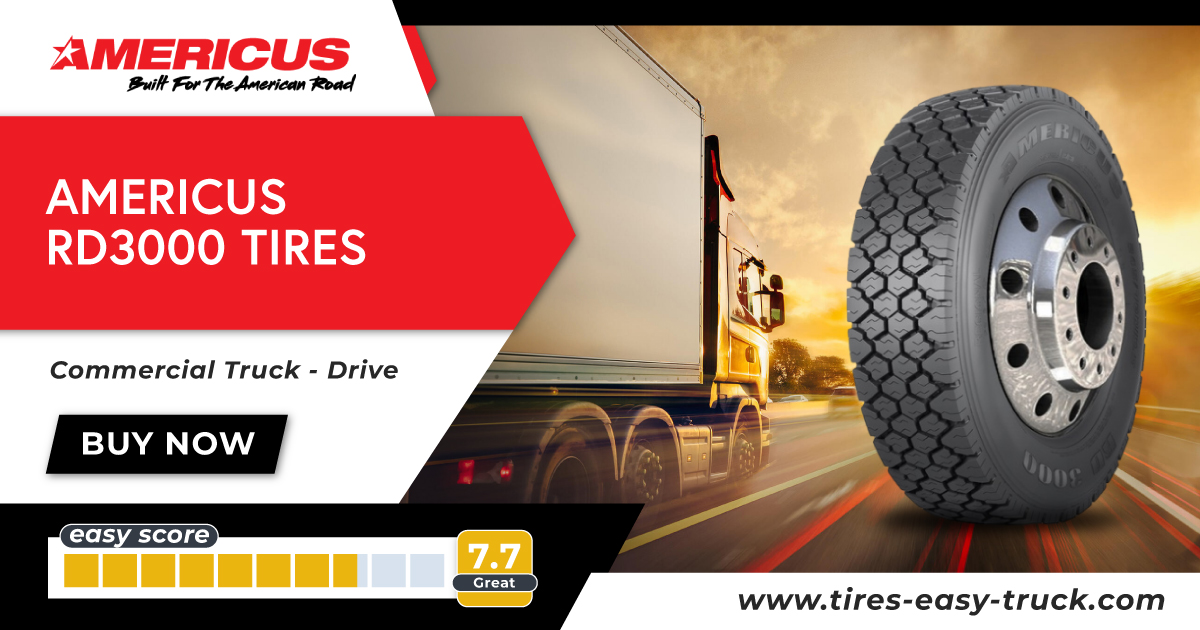
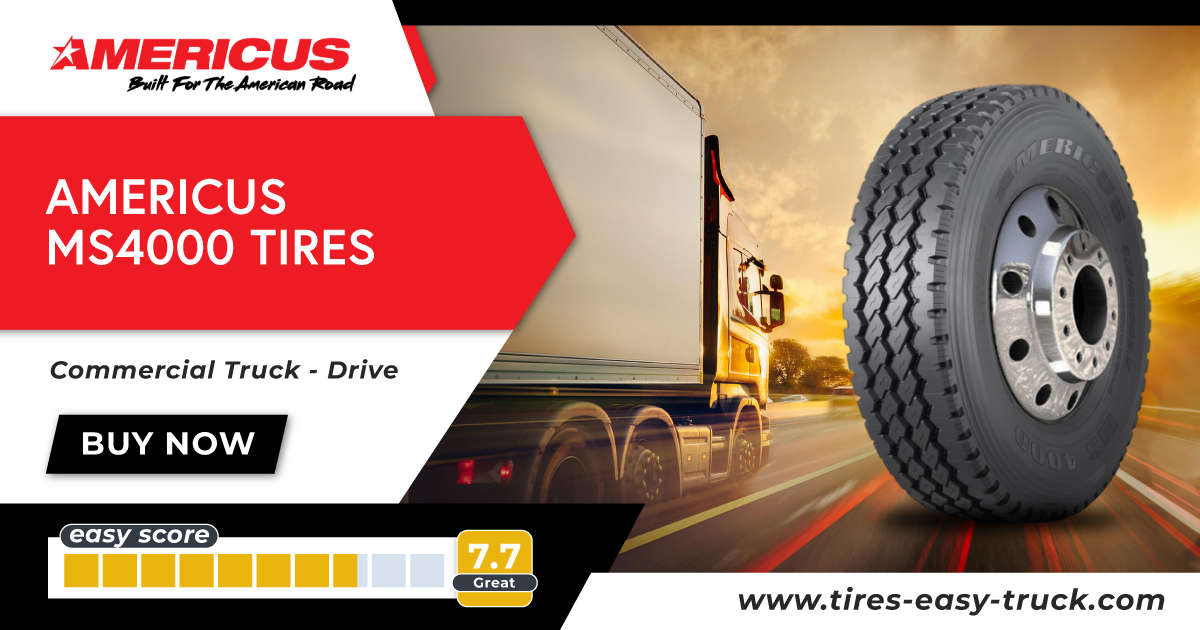
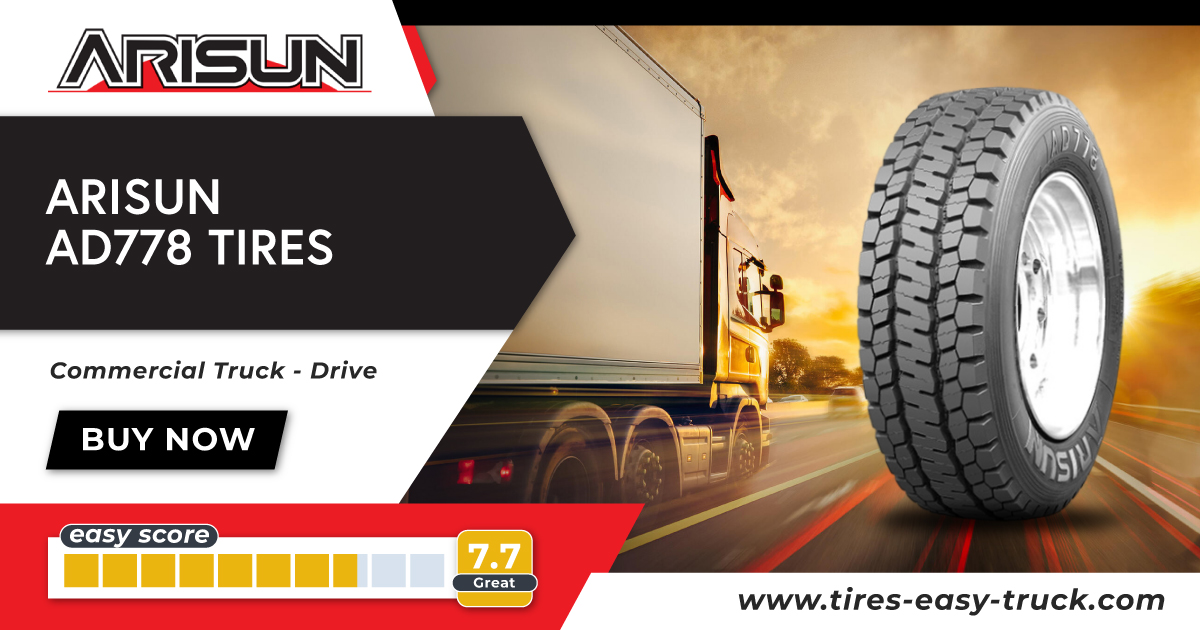
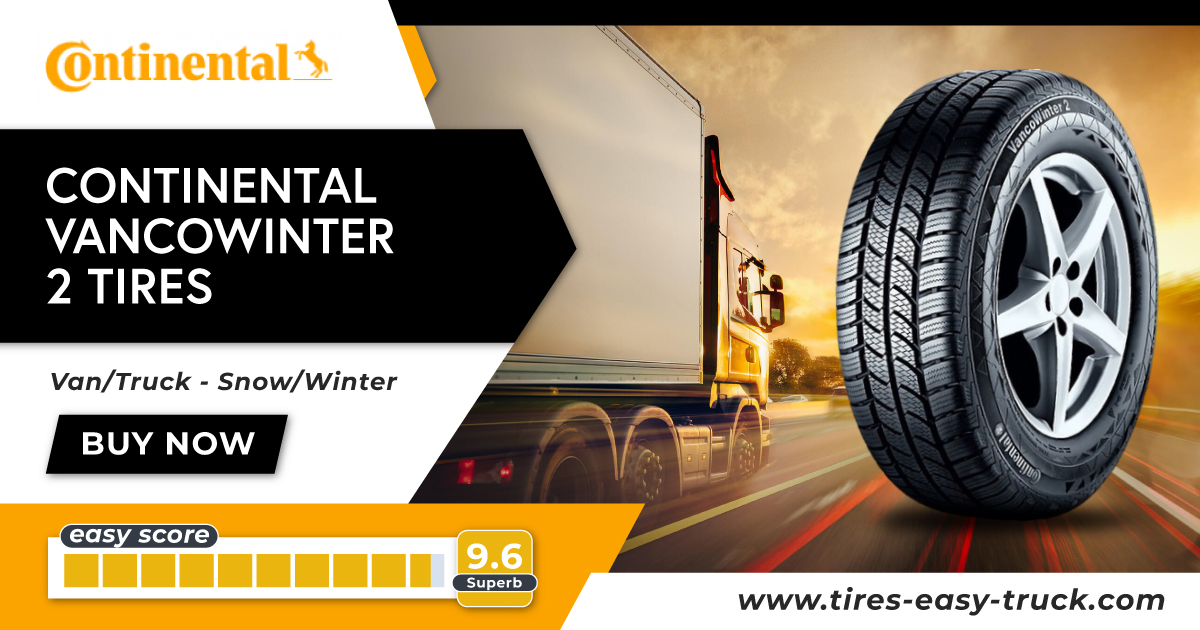
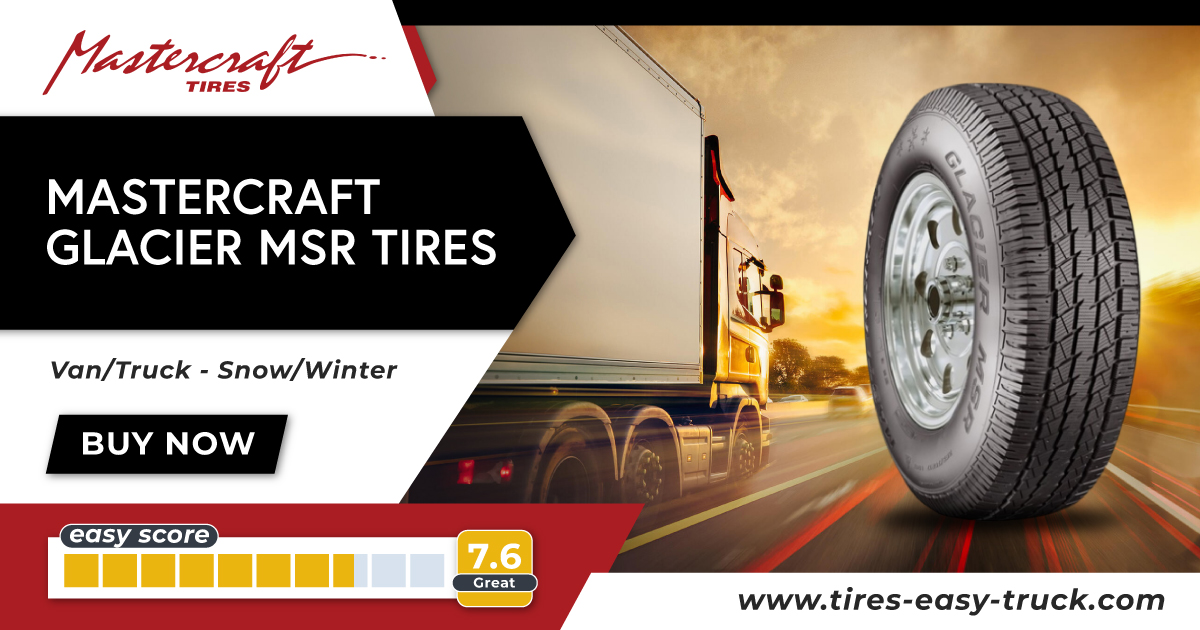
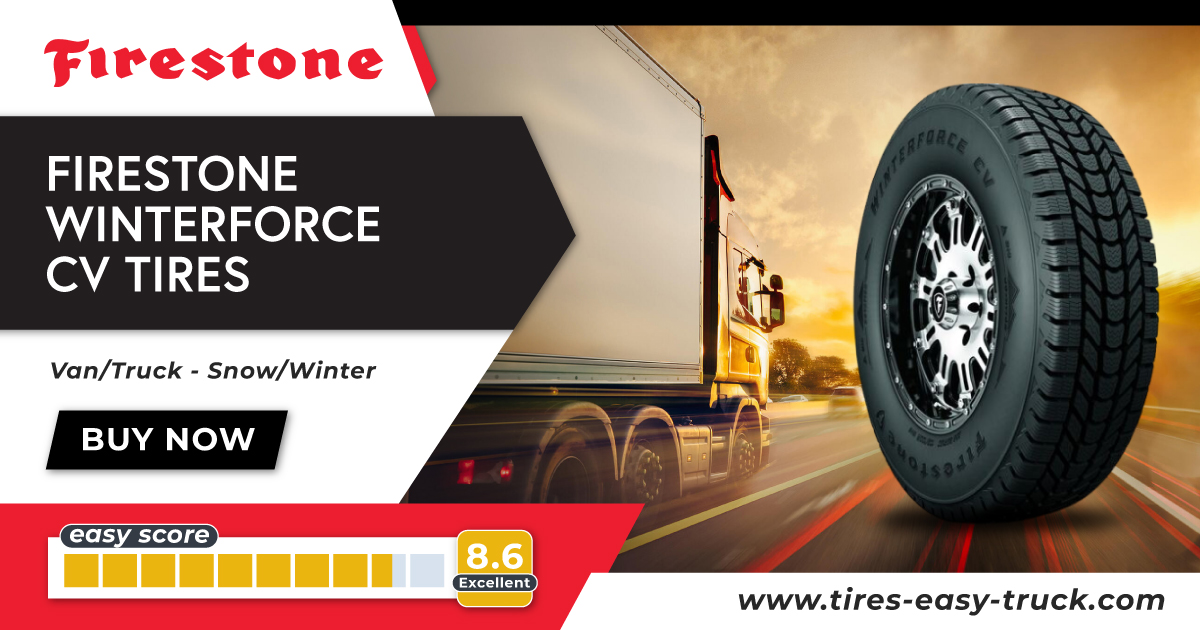
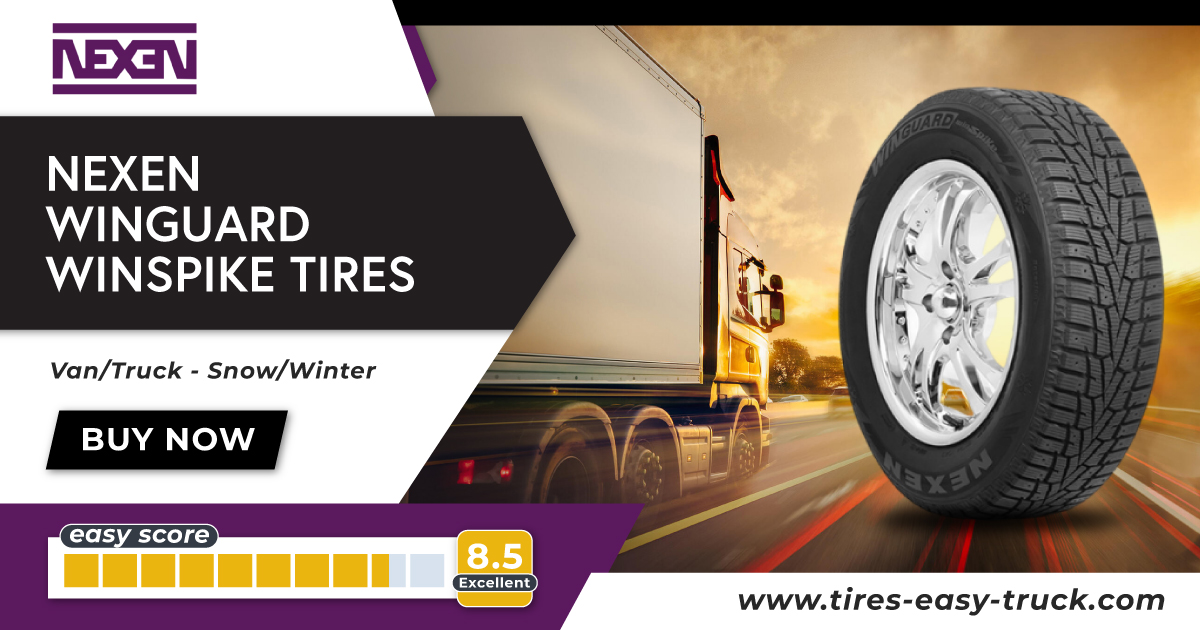
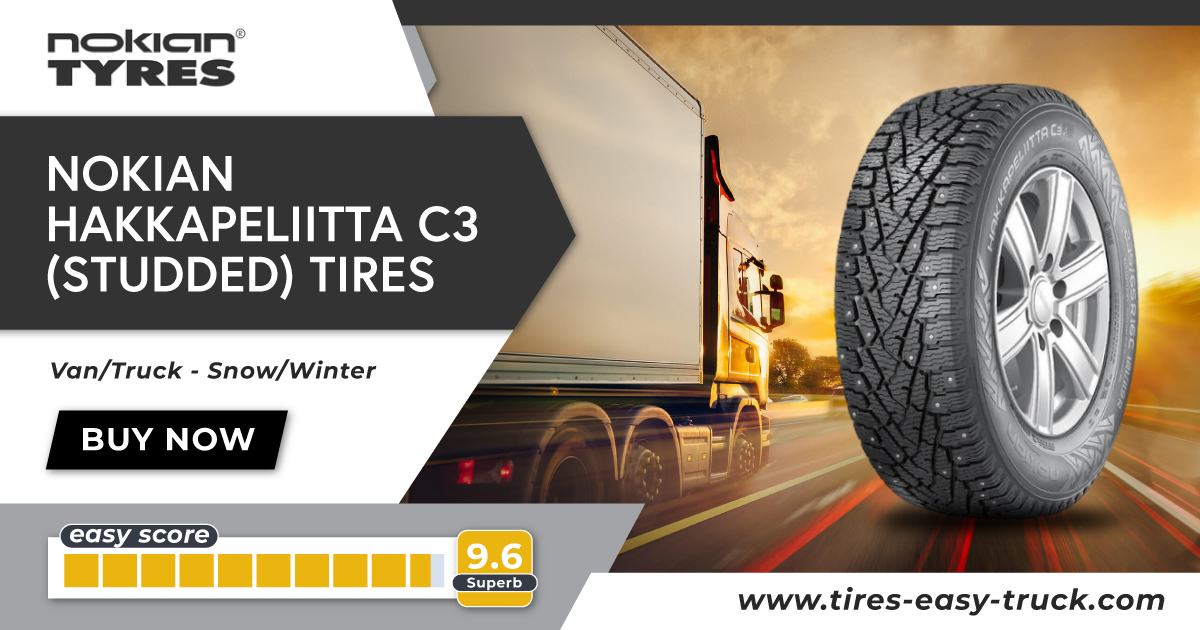






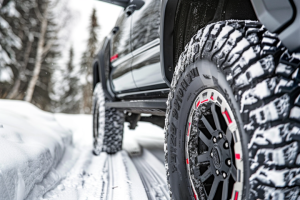
 English
English Français
Français Español
Español